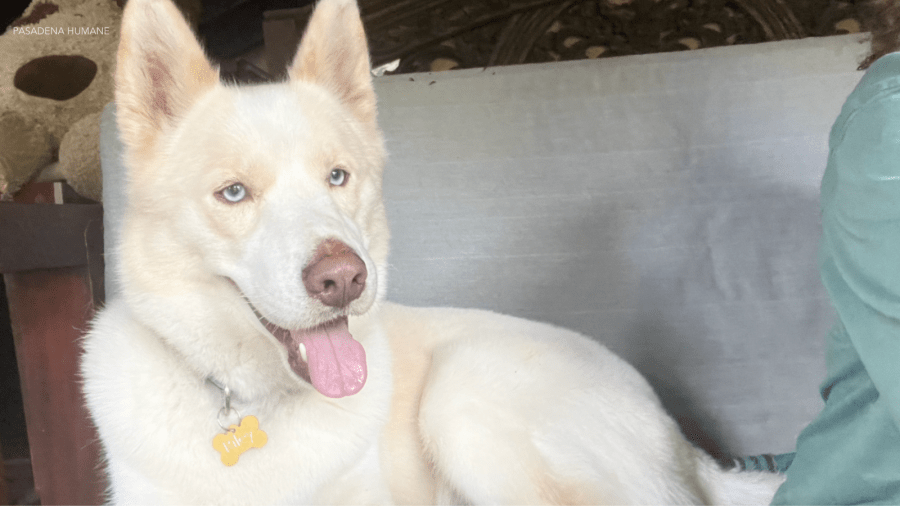When firefighters battled the flames of the Eaton Fire earlier this year, they weren’t only saving homes; they were saving lives in every form. One of those lives was Riley, a dog found severely burned and disoriented in the fire’s aftermath.
Riley was brought to the Pasadena Humane Society roughly 24 hours after the fire erupted. His injuries were extensive: burns covered much of his body, including all four paws, and he was struggling to breathe due to smoke inhalation. Despite the odds, Riley survived.
Over the following months, staff at Pasadena Humane cared for him with extraordinary dedication, tending to his wounds, managing his pain, and helping him overcome the emotional scars left by the wildfire.

“It was incredibly moving to watch this Eaton Fire survivor recover and thrive until finally, he was ready to find his new home,” Pasadena Humane said in a statement.
That home would ultimately be with Sylvia, who met with Riley several times to ensure he would be a good match not only for her, but also for her resident husky.
Now settled into his new life, Riley has become a quiet and constant companion.

“Riley likes to watch me work or sleep next to me while I’m in Teams meetings,” Sylvia said in a message shared by Pasadena Humane. “Thankfully, he doesn’t micromanage. Riley says he misses everyone who saved his life and took such great care of him at the shelter.”
Riley’s recovery and adoption mark more than just a happy ending. They represent hope and resilience in the face of disaster. His first photo at Pasadena Humane, showing his injured frame, was shared around the world and quickly became a symbol of the fire’s toll on animals.
“Riley’s adoption was a huge milestone,” the organization noted. “But nearly six months later, we continue to care for many animals whose families are still displaced.”
